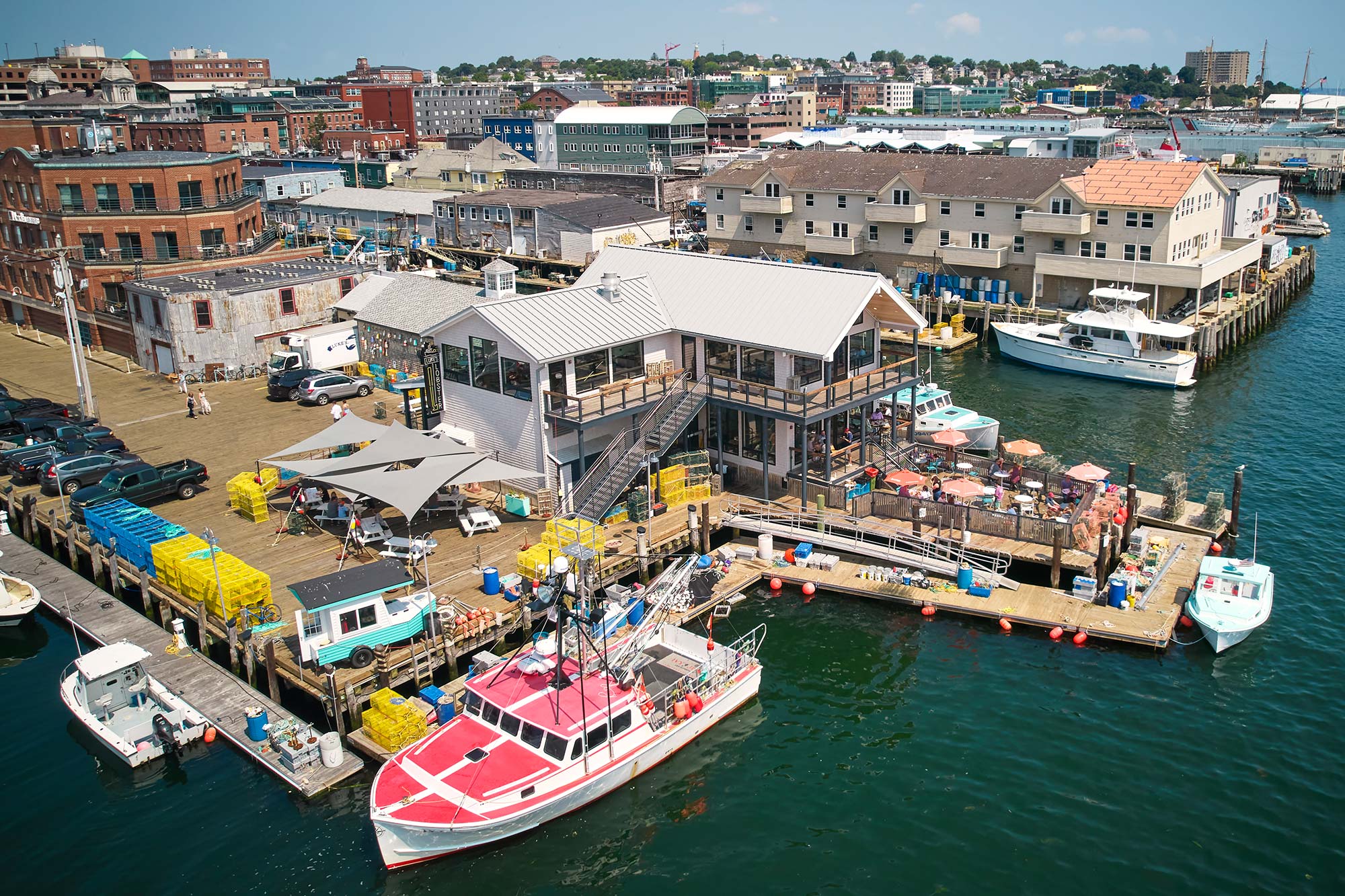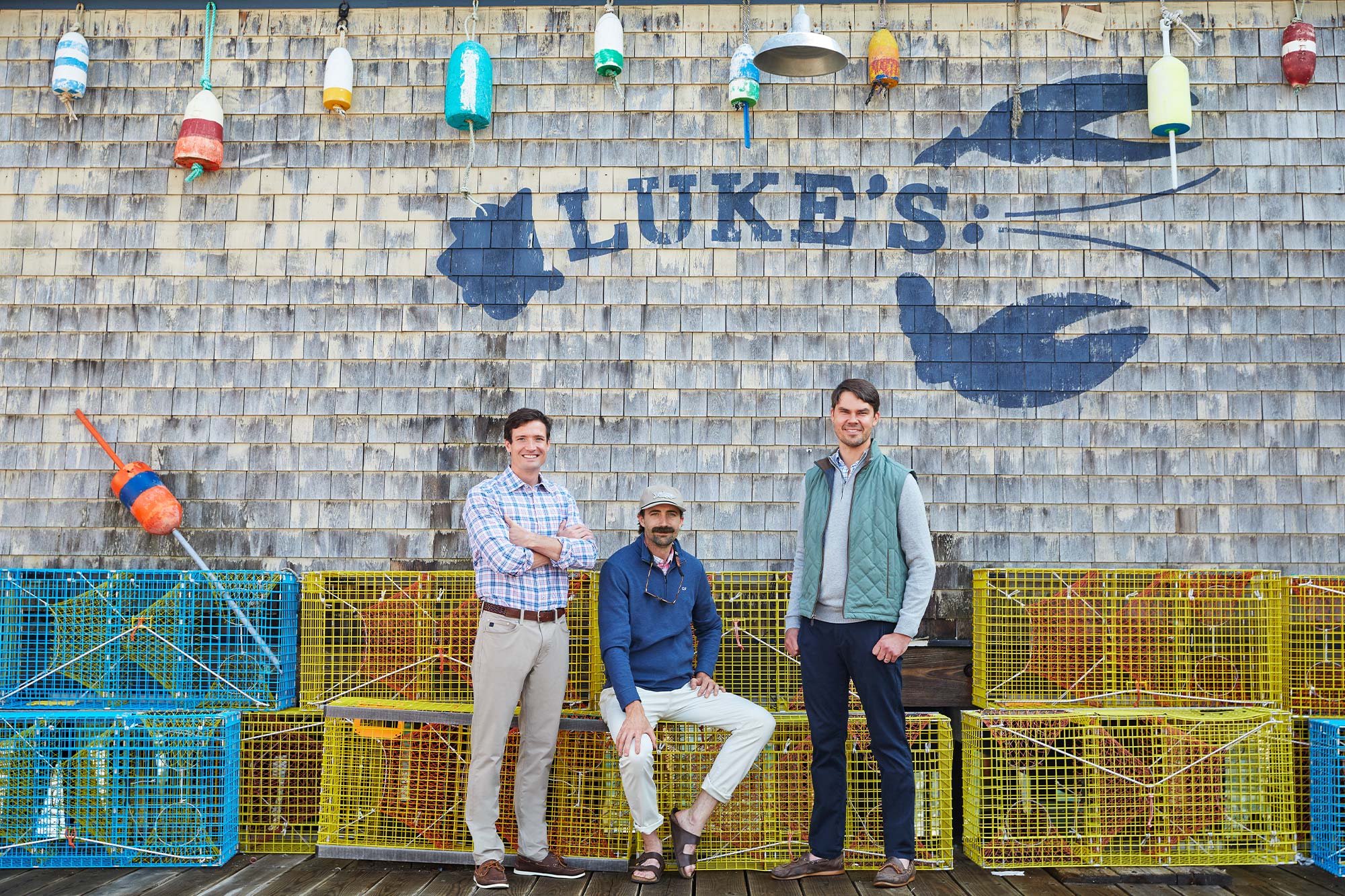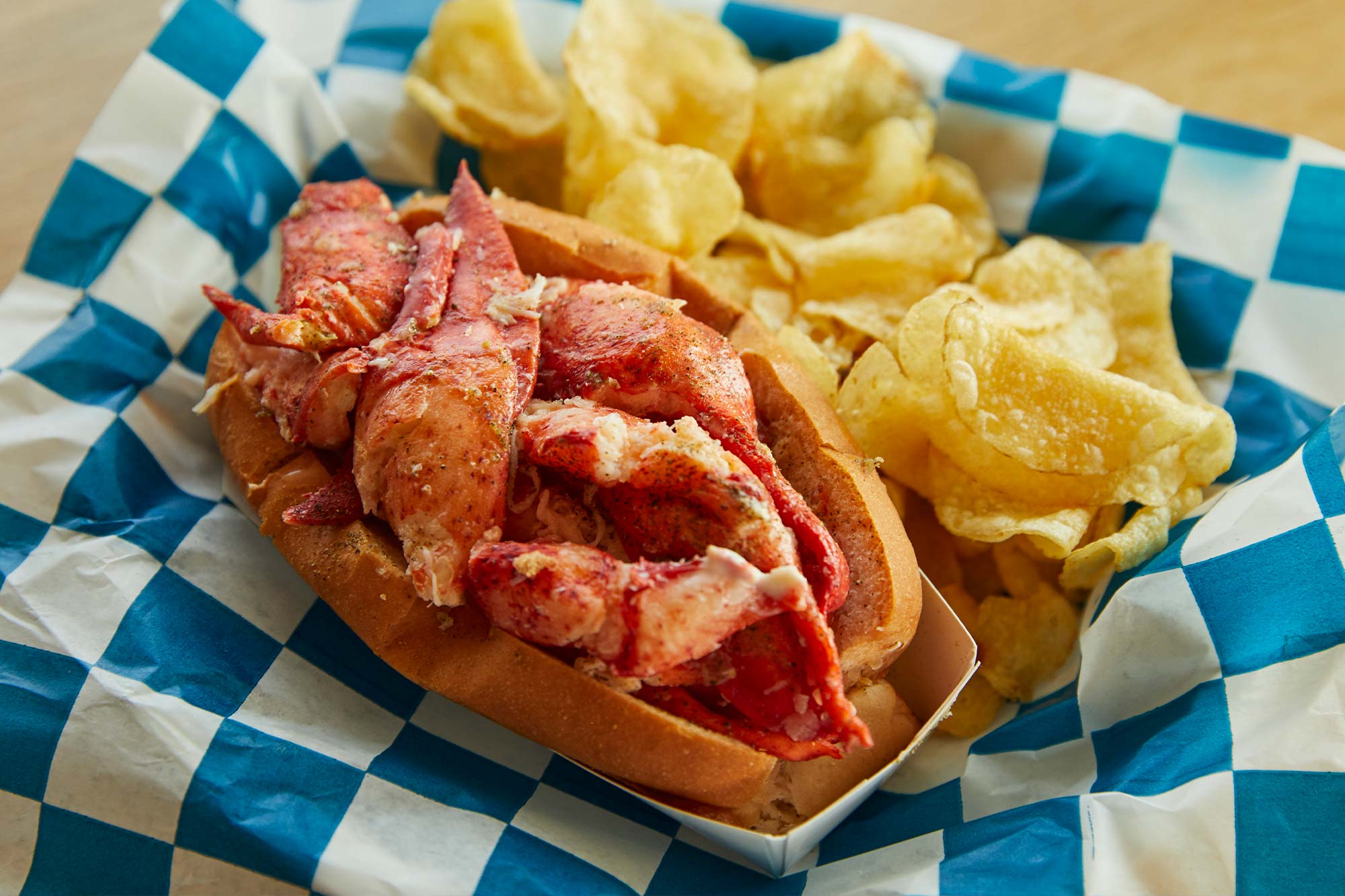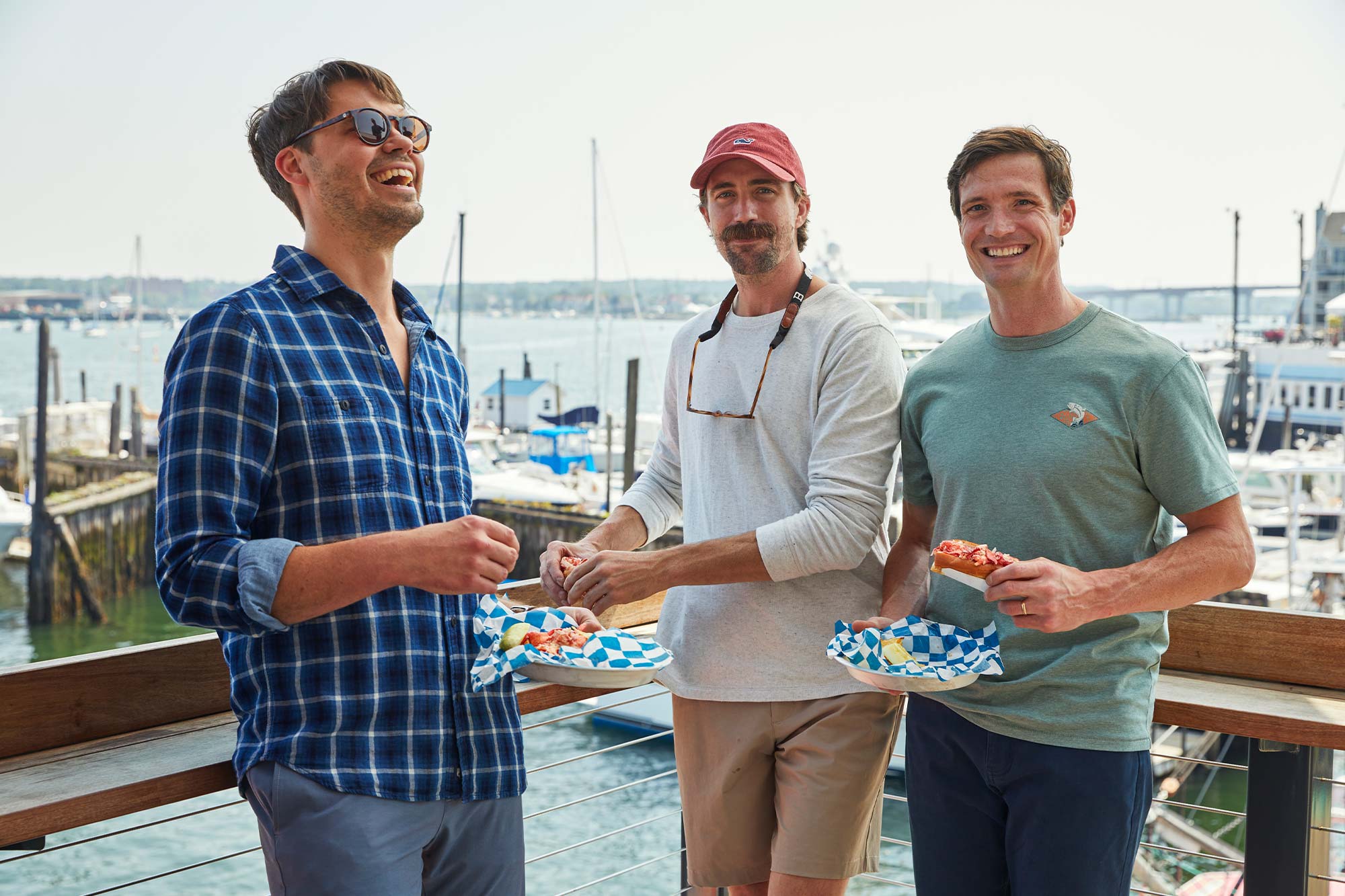Picture this: It's a hot summer day in 2009. A young man, fresh out of college and ready to start his career in the New York City finance scene, is wandering around his newly adopted home. One day, on a lunch break, he craves something familiar. And while the cobblestone streets of the West Village are reminiscent of his native Portland, Maine, the options for lobster rolls are anything but.
Being a third-generation lobsterman from Maine, Luke Holden knew the value of a good lobster roll. So like any entrepreneur, he saw an opportunity and seized it. He put an ad on Craigslist looking for someone to help him open a restaurant, and Ben Conniff came into the picture, followed by Luke's brother, Bryan Holden.
The plan was simple enough. "Luke's father owned a processing plant in Portland that produced the best lobster meat that money could buy," says Ben Conniff, Luke's Lobster Co-Founder and Chief Innovation Officer. "Luke put together a plan to buy that lobster, which his dad got directly from fishermen, bring it down to New York City and create an authentic Maine style lobster shack."
People liked Luke, they liked his authentic story, and they really liked the lobster. And just like that, a global seafood empire was born.

"When we opened Luke's we were governed based on two principles. First, to serve the best damn quality lobster roll in the world. Second, to treat people the way you would like to be treated," Luke Holden told us, as we sat out back of their flagship restaurant in Portland. "Those principles developed into our core brand values as the business professionalized, but we have not deviated."
Making the best lobster roll in the world is a lofty goal. But Luke, Ben and Bryan didn't just want to make the best product, they wanted to do it in the most sustainable way possible. "From day one, part of our mission was to only serve sustainable seafood," said Ben Conniff. "We've been inspired by the Maine lobster industry, which has been ahead of the game for centuries in voluntarily accepting regulations on their catch to ensure a growing lobster population. That means size minimums and maximums, it means throwing back egg-bearing females and marking them so they can never be caught again. It means a maximum number of traps, a maximum number of licensed fishermen. There are so many ways in which this fishery has opted to regulate itself that really set up this environment to be there tomorrow and the next day."

"That has always been an inspiration to our business, and what it's led to is going beyond just sourcing sustainable seafood and looking at other threats to our coastal environment that we can help mitigate," Ben continued. "It's led us to start calculating our carbon footprint and making sure that we reduce the carbon footprint of each of our wharves, it's led to waste reduction in our production facility and our lobster shacks. Our goal at Luke's is nothing short of being the world's most respected seafood company. Not to be the biggest, the most respected."
But obviously, the most sustainable way is not always the easiest, or cheapest, way to do business.
"Often the sustainable choice is the most expensive choice," Luke told us. "Short term, this hurts. Long term, which is how we like to operate, we create brand equity and trusted relationships with our stakeholders."

Luke's Lobster has taken this commitment to sustainability to a level that is rarely seen in the corporate world—in addition to everything else, they're also a certified B-Corp. "Being a certified B-Corp is a key for us to help measure and talk to the world about what we're committed to here at Luke's," Ben told us. "Becoming a B-Corp requires passing a rigorous assessment that looks at the full scope of your business's impact on the environment, on society, on your workers, on your community, and it measures you on all of those fronts. And in order to get that certification, not only do you have to say that you perform well, you have to actually prove that, you have to be able to measure your impact and you have to set goals to reduce it or improve it. As of today there are only six restaurant companies in the US that have this certification, and we're proud to be one of them."
This commitment to sustainability is born out of a deep respect for the lobster industry and the men and women who make it what it is. "There is so much more that goes into catching lobster beyond simply hauling up a trap on a sunny afternoon," Luke said.
"The amount of experience it takes to safely and economically run a boat in all kinds of weather conditions, 12 months a year, is a tall order. The time and attendance to make sure your traps, ropes, knots and buoys are in the condition they need to be in to trap lobsters is far more than one might think. The learnings around where and when to put your traps are learned over generations."

There's another, simpler aspect of it all that led Luke to the lobstering industry: He just really loves it. "I love the entrepreneurial effort and strong sense of sustainability. The harder you work, the more the reward. And what is so magical about this fishery are the sustainable regulations, and practices that ensure each fisherman leaves the fishery better than they found it for the new generation. I love spending time on the water with my family. And I love being on the ocean naviating, exploring, island hopping, fishing, and soaking in the sun."
Turns out, all of this—the passion, the history, the authenticity—is a combination for success. Today, Luke, Ben and Bryan have grown their business from a single lobster shack to a nation-spanning seafood empire that has even started to jump overseas (if you're ever in Singapore and you get the craving for a lobster roll, hit them up). Check out the location nearest you at lukeslobster.com. (And tell them we said hi.)

